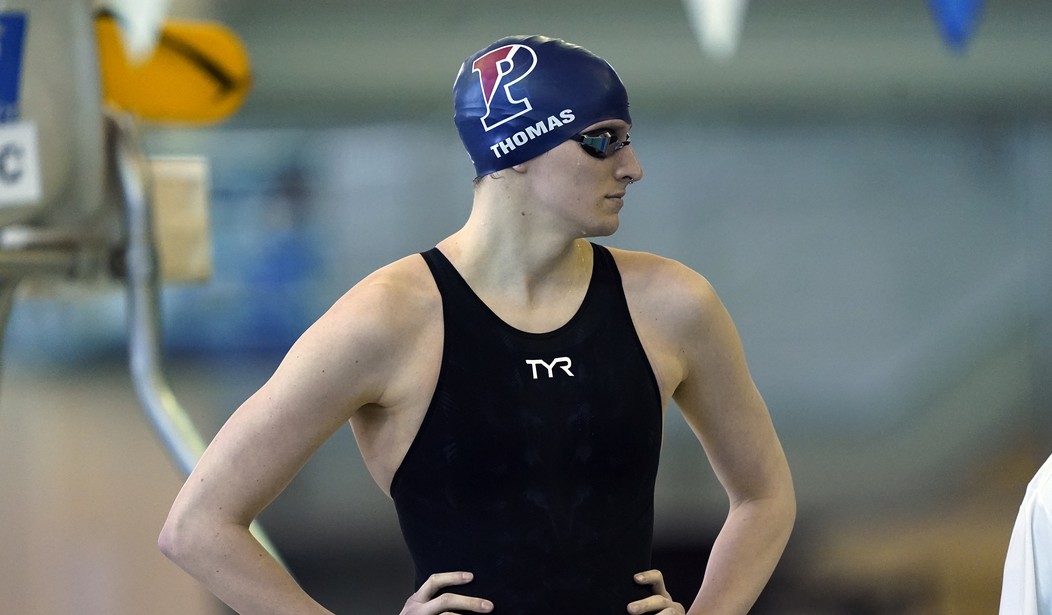More than a dozen female athletes have filed a lawsuit against the National Collegiate Athletics Association (NCAA) for allowing transgender athletes to compete against them.
The women seek rule changes that would make biological males ineligible to compete against female athletes. The suit also demands that the NCAA revoke all awards given to trans athletes in women’s competitions, "reassigning" them to females.
What's more, the suit asks for “damages for pain and suffering, mental and emotional distress, suffering and anxiety, expense costs and other damages due to defendants’ wrongful conduct.”
I can only speculate why no one has undertaken this legal action before. It might be, as PJ Media's Matt Margolis pointed out, that the "transgender fad may be fading." What is certain is that popular opinion overwhelmingly opposes biological men competing in women's sports.
The lawsuit accuses the NCAA of “destroying female safe spaces in women’s locker rooms,” in a violation of the Fourteenth Amendment. It claims the association allows “naked men possessing full male genitalia to disrobe in front of non-consenting college women” and creates “situations in which unwilling female college athletes unwittingly or reluctantly exposed their unclad bodies to males, subjecting women to a loss of their constitutional right to bodily privacy.”
Indeed, one of the parties to the suit, North Carolina swimmer Kylee Alons, told the Free Press that when she swam against transgender swimmer Lia Thomas, she was so uncomfortable with the idea of changing in the women's locker room that she sought out a dimly lit storage closet.
“I was literally racing U.S. and Olympic gold medalists and I was changing in a storage closet at this elite-level meet,” Alons said. “I just felt that my privacy and safety were being violated in the locker room.”
The left doesn't think this shared locker room experience is a problem. Neither do they believe that shared bathrooms are a problem. But women certainly believe that it's a problem, and they're tired of having men parade around naked while they're changing.
Riley Gaines and Kaitlynn Wheeler, two more plaintiffs who both swam for the University of Kentucky, said they first discovered that Thomas, who is more than six feet tall, had access to the women’s locker room when Thomas walked past them as they changed into their racing suits. The suits are so tight they “require 15–20 minutes to put on,” the lawsuit states.
“While you’re doing this, you’re exposed,” Wheeler said. “You can’t stand there and hold a towel around you while putting the suit on at the same time.”
“Never in my 18-year career had I seen a man changing in the locker rooms. I immediately felt the need to cover myself,” added Wheeler, who said she was exposed from the waist up at the time. “I could feel the discomfort of the other girls in there.”
Another woman, known as "Swimmer 'A,'" said in the suit that she “was shocked to see a naked Thomas 10 feet in front of her and a full frontal view of Thomas’s genitalia” when she first entered the locker room.
The suit goes to the heart of the matter, challenging the theory that the NCAA allowing Thomas and other transgender individuals to compete is based on the “illegal premise” that “testosterone suppression and personal choice alone can make a male eligible to compete on a women’s sports team.”
If a male has gone through puberty, even after taking hormone suppressants, he maintains a distinct biological edge over female competitors.
Riley Gaines, who has emerged as one of the strongest advocates for women in sports allowing biological males to compete against women, said the NCAA “undermines everything that Title IX was created to protect.”
“The NCAA’s most basic job is to protect the fairness and safety of competition,” she said, “but instead, the NCAA has been and continues to openly discriminate against women.”
The suit claims that NCAA standards for trans people competing as females are out of date with the international governing bodies of sports. “Transgender Eligibility in Sport” relies on “an outdated, non-peer reviewed, two-and-a-half-page statement issued by the participants in an International Olympic Committee (IOC) organized meeting in 2015,” which has since been replaced.
Gaines concluded that it's the "rules that are the problem. Not Lia Thomas.”










